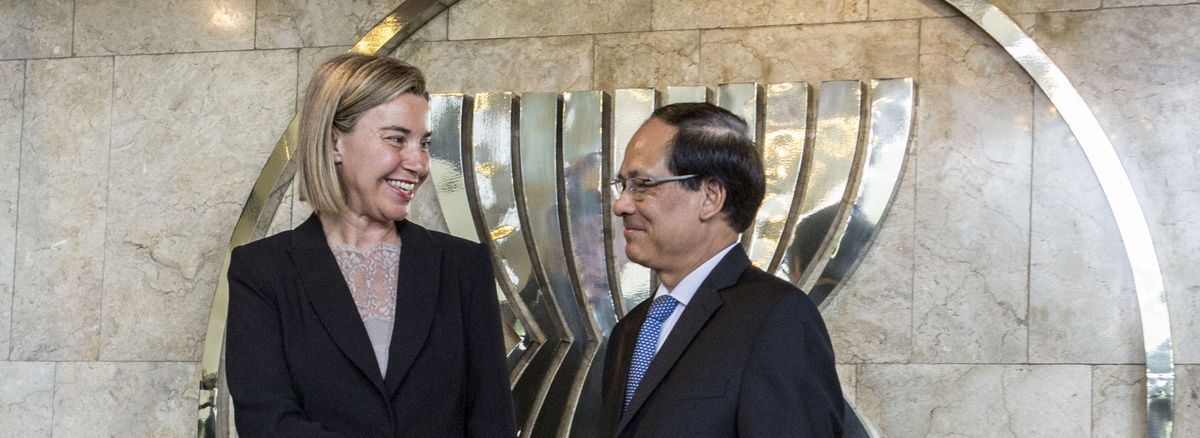
Summary
Next year promises to be an important one for EU-ASEAN relations, noted moderator Shada Islam, Director of Europe & Geopolitics at Friends of Europe. As ASEAN moves closer to the development of the ASEAN Economic Community (AEC) and its Vision 2025 goals, the relationship between the two regional organisations, now entering its 40th year, is set to deepen.
European business, too, has a long history in the ASEAN member states, said Donald Kanak, Chairman of the EU-ASEAN Business Council, which represents over 11,000 European companies and multinationals in the region, spanning multiple sectors from manufacturing, through information and financial services, to logistics and consumer goods.
“There are many companies on the ground with deep roots in the region that are committed to sustainable growth and economic development,” he stressed. “We are seeing encouraging signs and a lot of optimism across the region for economic growth, social inclusion, and the prospects of European businesses.”
From now through 2030, ASEAN member states are set to nearly double the number of middle-class households to 160 million. In addition, the working and urban populations are expected to increase by 100 and 90 million respectively.
“The EU-ASEAN relationship is really about economics, trade, and investment,” said Islam. “In 2017, the discussion is set to focus renewed energy on an EU-ASEAN free trade agreement (FTA) and the economic dynamism of Southeast Asia and the European businesses that are at the core of the relationship.”
About
As two of the most advanced regional organisations in the world, the EU and ASEAN are taking their relationship to the next level. The EU has become ASEAN’s biggest trading partner after China, and ASEAN now represents the EU’s third largest trading partner, with bilateral trade in goods and services reaching €246.6bn in 2014. ASEAN is also becoming an increasingly attractive investment destination for EU businesses, in part due to its efforts to drive regional economic integration and create an ASEAN Economic Community (AEC), which will allow the free flow of goods, services, investments, and skilled labour, and the freer movement of capital across the region. Politically, the appointment of a dedicated EU Ambassador to ASEAN in 2015 and the flurry of high-level visits to ASEAN, including by High Representative Mogherini and Commissioner Malmström, show the desire to upgrade relations to a more strategic level. The new ASEAN Community Vision for 2025, with its emphasis on building stronger people-to-people links, also opens new avenues for EU-ASEAN cooperation.
- A year after it entered into force is the ASEAN Economic Community fulfilling its promises?
- What are the main challenges encountered by EU businesses in ASEAN and vice versa and how could these be resolved?
- Now that the EU has finalised Free Trade Agreements with two ASEAN member states, and is negotiating FTAs with 4 others, is it time for a region-to-region Free Trade Agreement?
- How will Brexit affect EU-ASEAN trade and investment ties?
IMAGE CREDIT: CC / FLICKR – European External Action Service
Schedule
The business view
As two of the most advanced regional organisations in the world, the EU and ASEAN, are taking their relationship to the next level. The EU has become ASEAN’s biggest trading partner after China, and ASEAN now represents the EU’s third largest trading partner, with bilateral trade in goods and services reaching €246.6bn in 2014. ASEAN is also becoming an increasingly attractive investment destination for EU businesses, in part due to its efforts to drive regional economic integration and create an ASEAN Economic Community (AEC), wich will allow the free flow of goods, services, investments and skilled labour, and the freer movement of capital across the region.
Politically, the appointment of a dedicated EU Ambassador to ASEAN in 2015 and the flurry of high level visits to ASEAN, including by High Representative Mogherini and Commissioner Malstrom, show the desire to upgrade relations to a more strategic level. The new ASEAN Community Vision for 2025, with its emphasis on building stronger people-to-people links, also opens new avenues for EU-ASEAN cooperation.
- A year after it entered into force is the ASEAN Economic Community fulfilling its promises?
- What are the main challenges encountered by EU businesses in ASEAN and vice versa and how could these be resolved?
- Now that the EU has finalised Free Trade Agreements with two ASEAN member states, and is negitiation FTAs with four others, is it time for a region to region Free Trade Agreement?
- How will Brexit affect EU-ASEAN trade and investment ties?
Introductory remarks by
Donald Kanak
Chairman of the EU-ASEAN Business Council
Speakers
Peter Berz
Acting Director for Asia and Latin America in the European Commission Directorate-General for Trade
Jose Antonio Buencamino
Special Trade Representative and Commercial Counsellor at the Mission of the Philippines to the European Union
Carsten Hess
Vice President & Head of Corporate Public Policy for Asia Pacific, Eastern Europe, Middle East & Africa at Deutsche Post DHL Group
Alessia Mosca
Member of the European Parliament Committee on International Trade and S&D Shadow Rapporteur for the EU-Vietnam Free Trade Agreement
Guenter Taus
President of the European Chamber of Commerce of the Philippines (ECCP) and Managing Director for Jardine Engineering Corporation (JEC)
Moderator
Shada Islam
Managing Director at New Horizons Project
Speakers
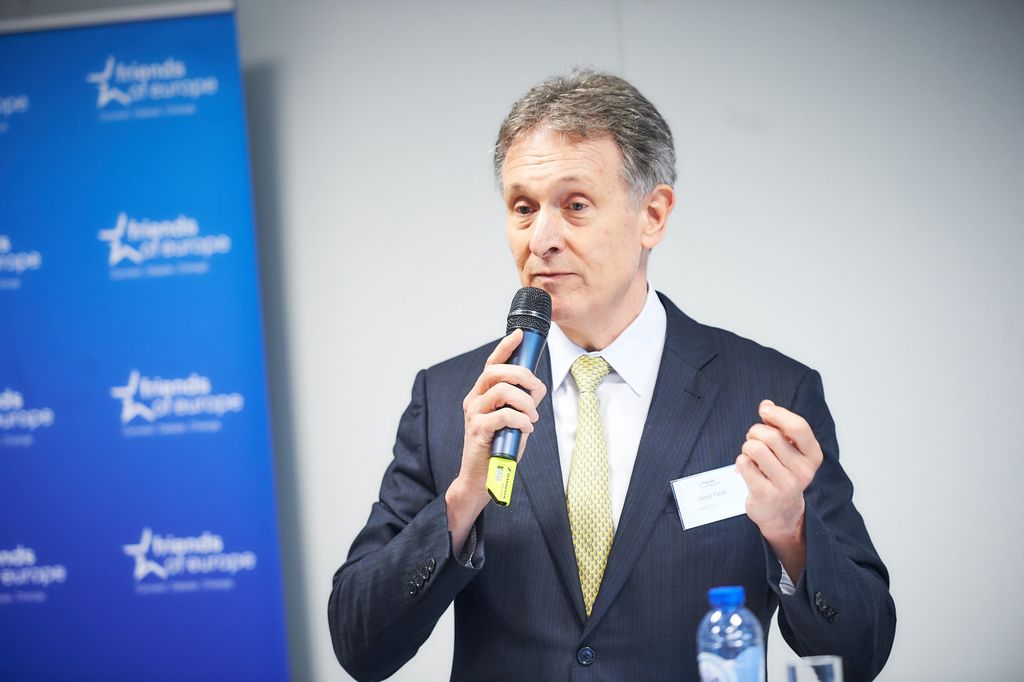
Chairman of the EU-ASEAN Business Council
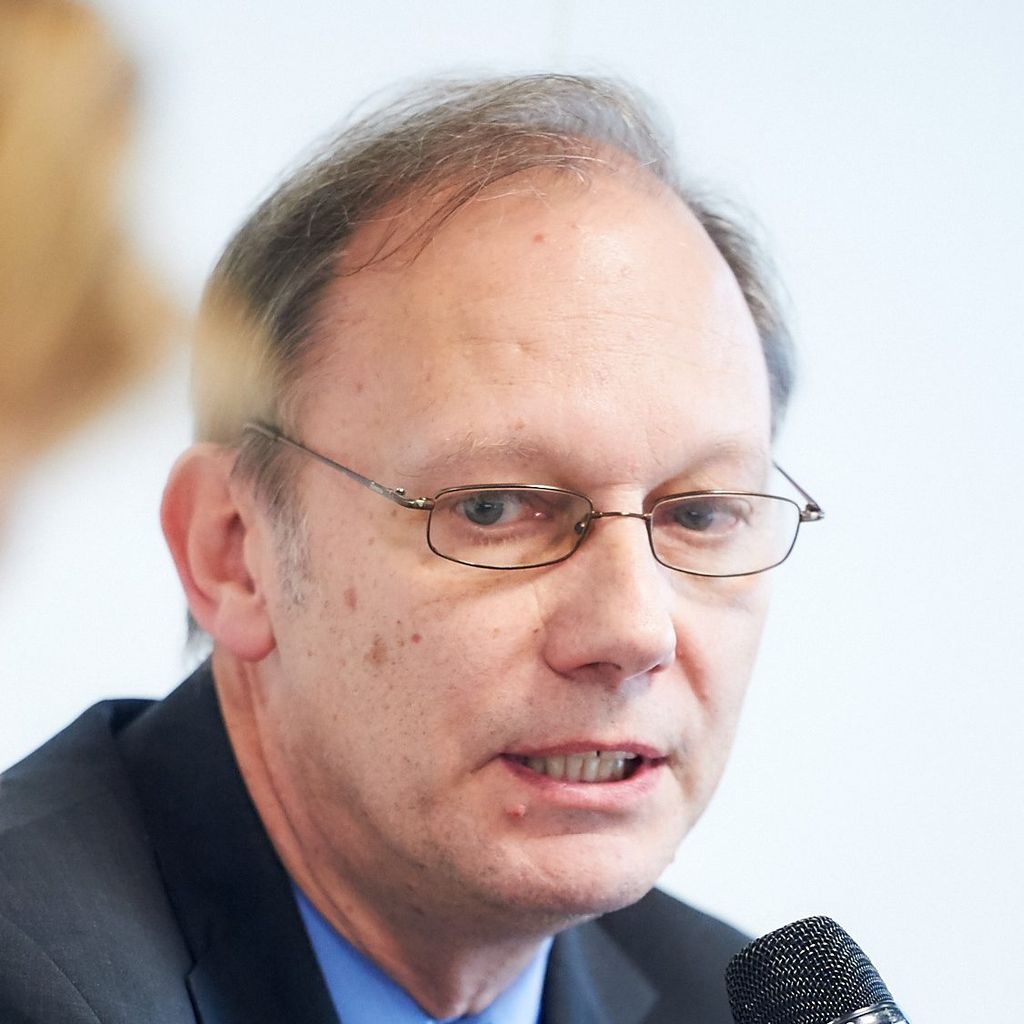
Acting Director for Asia and Latin America in the European Commission Directorate-General for Trade
Peter Berz has over 25 years of experience working in the European Commission. In his current position in the Directorate-General for Trade, he is responsible for the European Union’s trade and investment relations with countries across Asia and Latin America. Prior to this, Berz held various other positions in the European Commission, including working with third countries on intellectual property rights and on trade in textiles, as well as on transatlantic relations – including during his tenure at the EU Delegation in Washington, D.C.
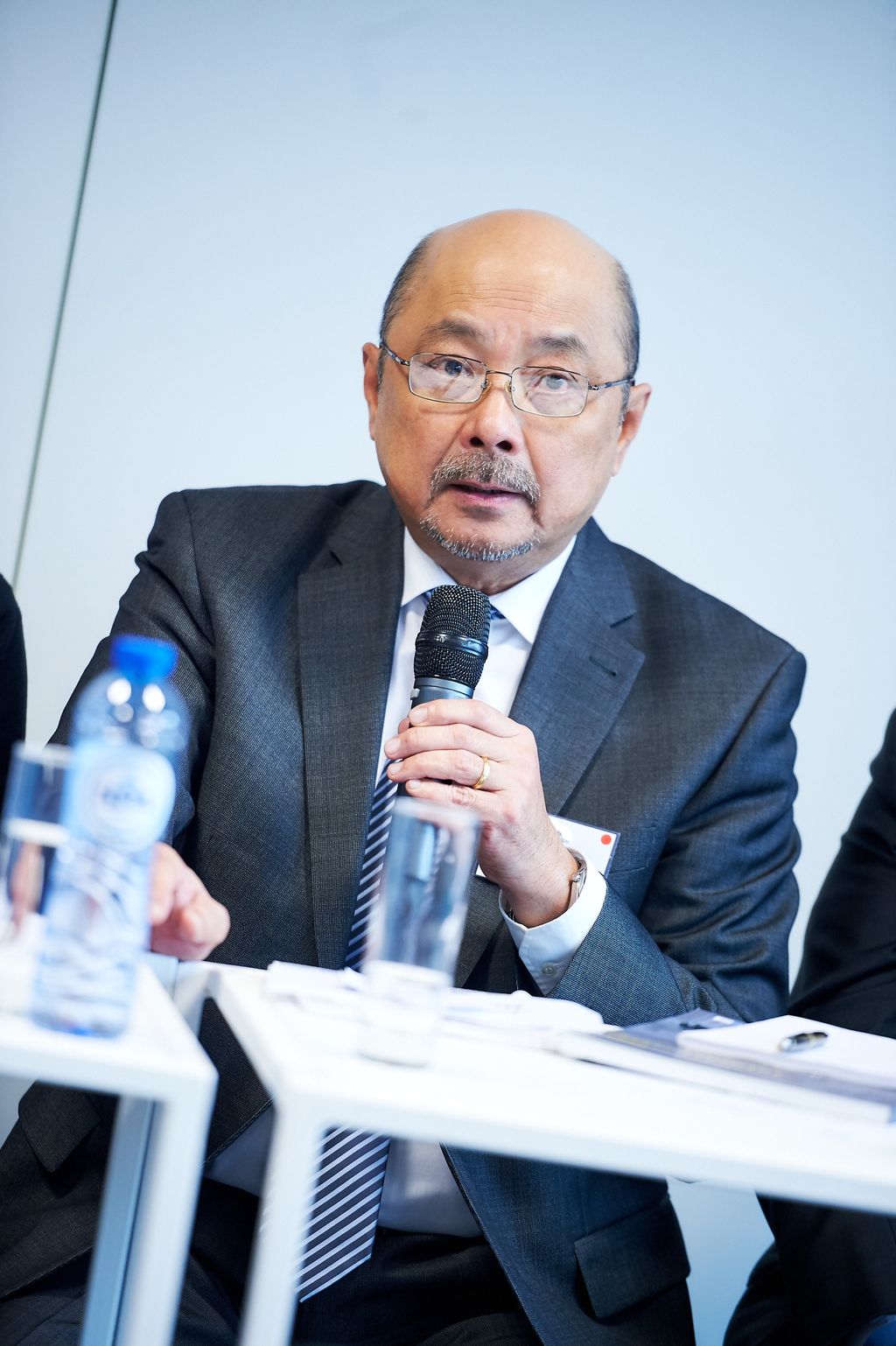
Special Trade Representative and Commercial Counsellor at the Mission of the Philippines to the European Union

Vice President & Head of Corporate Public Policy for Asia Pacific, Eastern Europe, Middle East & Africa at Deutsche Post DHL Group
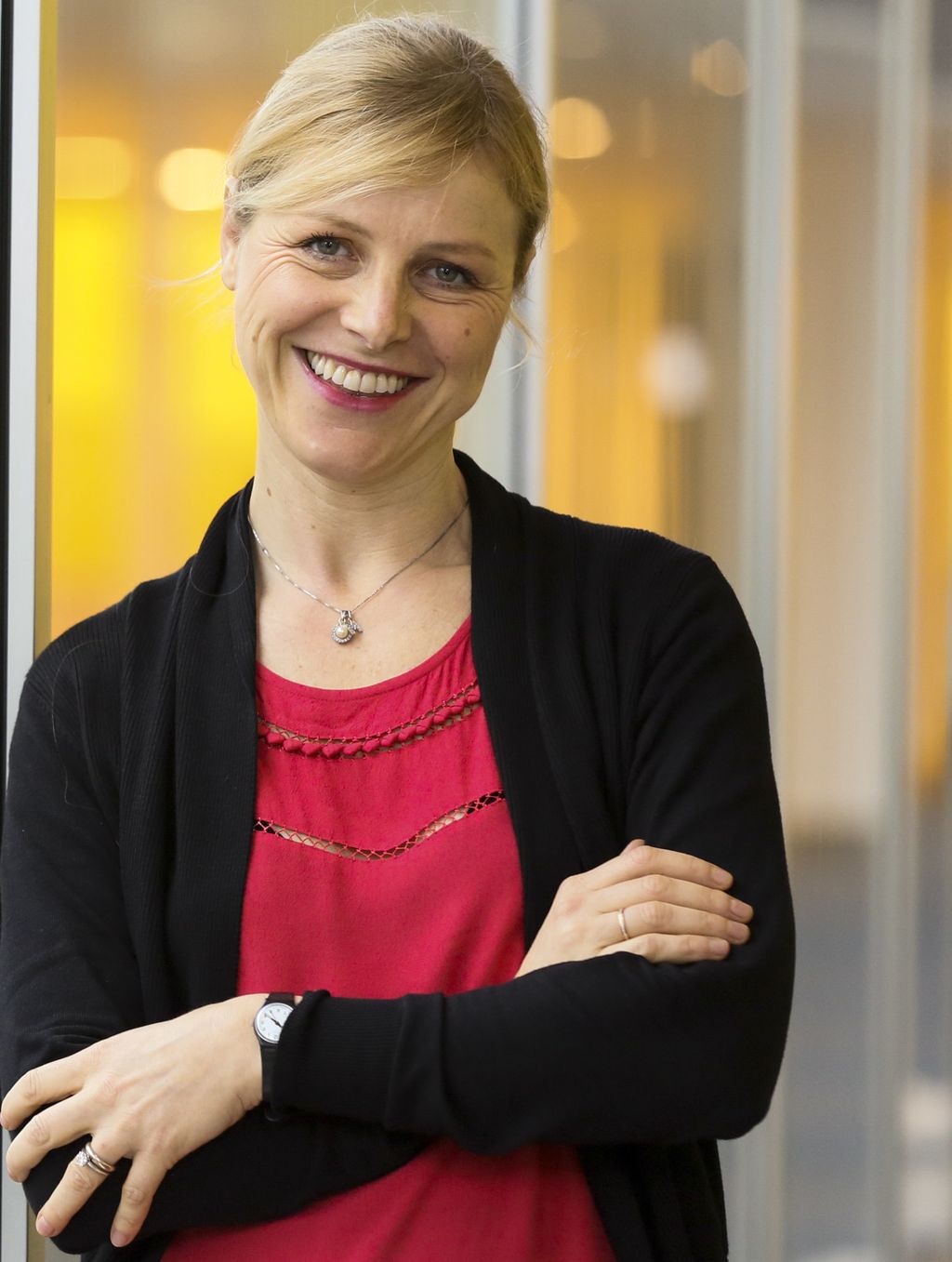
Member of the European Parliament Committee on International Trade and S&D Shadow Rapporteur for the EU-Vietnam Free Trade Agreement

President of the European Chamber of Commerce of the Philippines (ECCP) and Managing Director for Jardine Engineering Corporation (JEC)
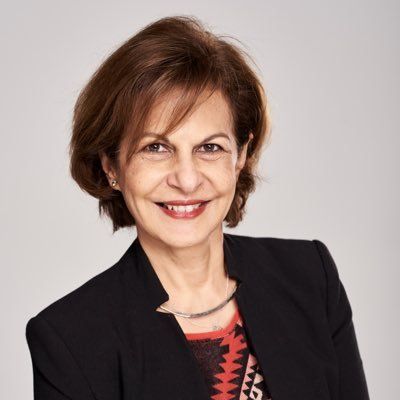
Managing Director at New Horizons Project
Partners
Coorganized with
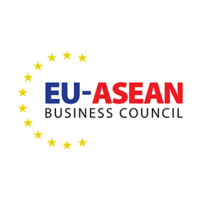
Activities
Europe-China Forum
Next event In person & livestreamed

- Area of Expertise
- Global Europe
Trading tariffs and trade as a geopolitical tool
Past event

- Area of Expertise
- Global Europe
From aid to investment: shaping Europe's global role in a changing world
Past event Online

- Area of Expertise
- Global Europe
Future Africa-Europe High-Level Forum
Past event IN PERSON & ONLINE

- Area of Expertise
- Global Europe
Trump's betrayal of the world's poor is Europe's opportunity
- Category
- Frankly Speaking
- Author
- By Giles Merritt
Policy Voices | #Throwback: UNRWA’s Jonathan Fowler on Gaza: “It is a…
- Category
- Podcast
- Area of Expertise
- Global Europe
DRIVE Impact Initiative final report
- Category
- Event Reports
- Area of Expertise
- Global Europe
Europe’s blackouts call for a NATO-level response
- Category
- #CriticalThinking
- Author
- By Maurizio Geri

- Area of Expertise
- Global Europe

- Area of Expertise
- Global Europe

- Area of Expertise
- Global Europe

- Area of Expertise
- Democracy
Continue
the debate on
- Debating Europe

